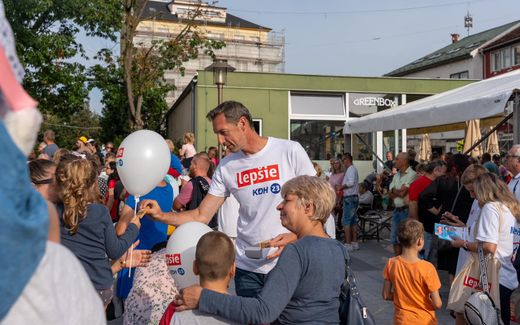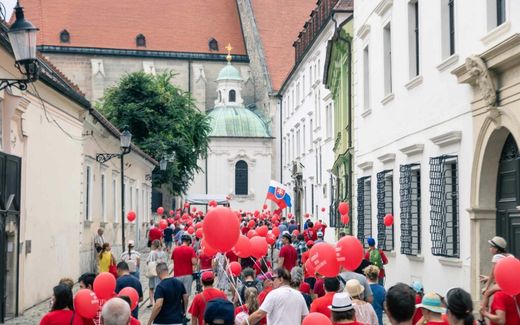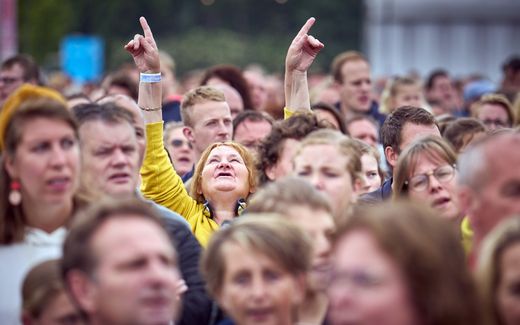Bishop after attack on Robert Fico: Atmosphere in Slovakia has become very harsh
21-05-2024
Central Europe
Ben Provoost, RD

People come to the place of the attack to mark solidarity with Prime Minister Fico. Photo AFP, Ferenc Isza
Central Europe
"Over the past 30 years, the atmosphere in Slovak society has become very harsh." So states Bishop Robert Géresi of the Reformed Christian Church of Slovakia (RCCS). He responds to the attack on Prime Minister Robert Fico.
What do you think the attack on Prime Minister Fico means for Slovakia?
"This is a serious incident, such as has never happened before in the history of our country. The whole society is dealing with this incident. Civil society actors, political parties, and Christian churches have all unequivocally condemned it. We must reject all forms of violence.

The attack on the prime minister draws our attention to a serious phenomenon. Historically, Slovakia is a young democracy. It was only after the dissolution of Czechoslovakia that the Slovak people took control of organising their own lives. In previous centuries, the guidelines on the territory of present-day Slovakia were determined by Hungarian, Austro-German and, in the 20th century, Czech society.
Over the past 30 years, the atmosphere in Slovak society has become very harsh. A deep rift has emerged between social and political actors. Verbal aggression has become part of everyday life. Unfortunately, sometimes, even physical violence has occurred between political actors. Dialogue is needed, but we must persuade the other or the community, not defeat it."
The demonination that the bishop represents, issued a prayer request after the attack on the Prime Minister.
How does your church feel about the attack on the prime minister?
“Our church rejects all forms of violence. We stand on the foundation of the Gospel and strive for peace. Of course, our church has not conducted a specific survey after this incident, and there is no possibility of doing so at present. The members of our church are shocked by what happened, and I believe they reject such actions."

What is the opinion of Slovak Christians in general and your church in particular about Fico and his government?
"Most of our church members are Hungarian; a minority are Slovak. Members have their own political views and act accordingly. None of the bodies of our church issues directives or prescriptions on political matters. That is why Slovak Reformed Christians are also divided in their opinions on Prime Minister Fico. Some support him, others do not. But that is as it should be.
However, I can say that there are no tensions within the church because of political opinions. We discuss and debate various topics, but we always know that we are all in God’s love.
How does the government relate to Christian values?
"I think Prime Minister Fico and his party belong to a left-leaning community. In relation to the church, they take a rather neutral position. However, the government has recognised that Christian churches are important factors in Slovak society. Fico's party has made several positive gestures towards Christian churches in recent years. The peculiarity of the situation is that they have done more than the parties that consider themselves right-wing when they were in power. In the last 30 years, right-wing parties have fallen short when it comes to paying attention to churches."
What is needed to reduce the intense polarisation in Slovak society, and does the church have a role in this?
"Unfortunately, Slovak society is indeed very divided. I don't see the main problem in people's different perspectives. The problem is rather that political actors and the media behave very aggressively. Short-term political gain is more important to them than social cohesion.
Churches can play an important role in improving the situation. We preach the Gospel that God loves and forgives. However, we must realistically acknowledge that churches today do not have enough power. Nevertheless, we do not give up hope. We pray and proclaim that love conquers evil and wrongdoing, and that all honour belongs to God."
This article is translated by CNE.news and was published before by Reformatorisch Dagblad on May 18th 2024.
Related Articles







